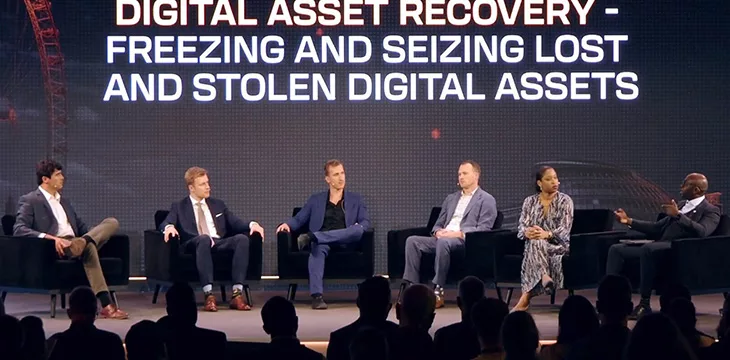Fintech booms as naira crisis stretches banks’ digital platforms

The naira crisis and the inability of banks to rise to the occasion has made customers embrace mobile money platforms. Funmi FABUNMI writes about how this has translated into a thriving business for fintech
The redesign of the naira notes caused a crisis that has made daily operations difficult for many individuals and organizations. Due to a cash shortage in February, Nigeria’s economy almost collapsed, resulting in protests across the country. As a result, the government reintroduced the old N200 notes into circulation, extending the deadline for their abolition by 60 days to April 10.
The scarcity of cash that has marked the naira redesign has left conventional banks struggling with the attendant pressures that have come from Nigerians migrating to mobile and digital banking, which has left their platforms stretched thin.
Banks were forced to close their doors to customers due to angry customers protesting their inability to withdraw money. With automated teller machines disabled and over-the-counter operations absent, banks’ digital platforms were overwhelmed. Many bank customers were left stranded as they were unable to complete their transactions.
Digital banking became increasingly erratic, with transfers that used to take minutes taking days to deliver. For example, founder and Chief Operating Officer of Convexity, Adedeji Owonibi, told The PUNCH about a payment he made through a digital banking platform that did not deliver after about a week.
A Guaranty Trust Bank customer, who only gave her name as Bolanle, lamented the poor network and how it has affected her.
“My bank app has not opened since last Friday. Thank God that I have customers who trust me enough to give me goods on credit. If not, I don’t know what I would have done.”
In response to the increased failed transactions in their platforms, many banks have drawn more staff to customer service to attend to customer complaints.
The banks were already in trouble before the naira crisis. Many of them have lost their best employees due to “japa” syndrome (local slang for migration). The naira crisis has brought to the fore the shortage of skilled IT manpower in the banking sector. Many of them have migrated to developed economies.
The bank is ready to bring in a foreigner at any price because the situation is embarrassing, and the board is getting impatient, said a source close to a HR consultant. But not many are that excited about Nigeria at the moment for obvious reasons. The most sensible thing is to see how they can poach good guys to stabilize the system and consider younger talent that can be trained overtime.”
According to the Vice President of the Nigerian Association of Small Scale Industrialists, Seun Kuti-George, “Although the migration to online payment is possible, limitations from service failures are matters of great concern. What exacerbates the situation are the technical issues that come with the new means of payment, which is transfer.
“For example, I made a payment to someone in the morning and until now the guy has not received the notification. So I had to leave the items there until tomorrow morning in the hope that the guy would be awake then. If there is an emergency or a matter of life and death or a matter of contract being cancelled, I would lose it. But all of these will also disappear over time.”
A source at United Bank for Africa, who spoke on condition of anonymity as he is not authorized to comment on the matter, blamed the network failures on huge online payment traffic. He said: “Internet traffic causes service failures.”
Similarly, an official of Access Bank, who spoke on condition of anonymity, told The PUNCH that even if the network failures occur, adding that “But if it persists for more than one day, you may have to visit the bank for help .” I mean when a banking app doesn’t open sometimes it might be a problem from your network provider. But when such situations persist, it can be a big problem that only a visit to the bank can solve.”
The President of the Bank Customers Association of Nigeria, Dr Uju Ogunbunka, said PUNCH: “You know that the banks do not offer network services. Based on what we found, there was an error in the network system. And there was so much pressure. Everyone came to the bank to do one thing or another, whether it was necessary or not. Because people were trying to meet the redesigned deadline for naira notes, the pressure was too great. Unfortunately, some of these systems are still under construction. They are not as strong. And you don’t expect a miracle to happen. These are man-made matters.
“We heard that the collapse of the network was not primarily the problem of the banks. It was just that it manifested itself in the banking sector. Even those of us who do not work in the bank also witnessed the network problem with our phones. I would not agree with that it was the banks’ problem. It just manifested itself within that framework. It manifested itself in various other places because the public’s eyes were on the banking system, and so we noticed it very clearly.
He explained that the problem of remitted transfers can be attributed to a poor network. “Most of the cases of missing funds have to do with failures in the network. If I transfer money, even in the days when we used the post office and the telegram and there was an interruption in that system, the money will not get there on the same day and time that you expected .Sometimes the money disappears not because someone took it, but because it got stuck somewhere.And if it was traced, you can still find it.
Sometimes it becomes a problem that someone tries to manipulate the system and thereby commit fraud. We have a lot of fraud experts in this country and unfortunately, no matter how you try to build the system, they still find a way to work against the system,” Ogunbunka declared.
According to him, “That is why when you look at the reports of the CBN, NDIC and even the banks, you will see quite a lot of fraudulent activities in the financial industry.
“Some people have dedicated their lives to continuing to find loopholes to take advantage of, which is very unfortunate. Many people, who do not have jobs, have decided to go into all these unhealthy practices that expose others to problems and headaches, which is pathetic. I think this is part of the missing fund element. However, the majority of these missing funds were caused by failed transactions, which can be recovered. And quite a few of them have been recovered as far as I know.”
Also, the National President of the Association of Mobile Money Agents in Nigeria, Victor Olojo, said: “The fact is that the sector is experiencing a lot of problems and pressures that are very closely related to the CBN policy, so a number of the Banks are overburdened in terms of IT and thus affects the banks’ ability to handle the traffic and pressure on all their platforms.”
While banks are struggling to cope with the pressures that have come with the naira redesign, there has been a boom period for financial technology companies also known as fintech. Many bank customers have switched to fintech for their daily transactions.
Fintech like Kuda, PalmPay, Moniepoint, Parallex, etc., have become household names in the country as customers now depend on them for online payment as the naira crisis drags on.
“We can also say that this period has been quite challenging from the CBN policies to the state of the state to the attacks on banks, but just to add that fintech, such as Opay, Kuda, PalmPay and others, have come to save the day, and many Nigerians have fallen back on this fintech that was previously known as underdogs.”
He advised the banks to do more to strengthen their infrastructural base in terms of capacity building.
“The reason some of these applications didn’t work is probably because their capacity was stretched too far, so they need to do more in some of these areas. For the federal government, I think they need to make sure they’re providing a good playing field for fintech to strive more, because you will realize that now the banks cannot handle all their demands.”
The Association of Mobile Money Agents president stated that fintech also has many roles to play in tackling today’s challenges.
Owonibi also noted that although the naira crisis has benefited fintechs, they need to switch to blockchain to avoid system outages due to the increasing traffic on their networks.
























